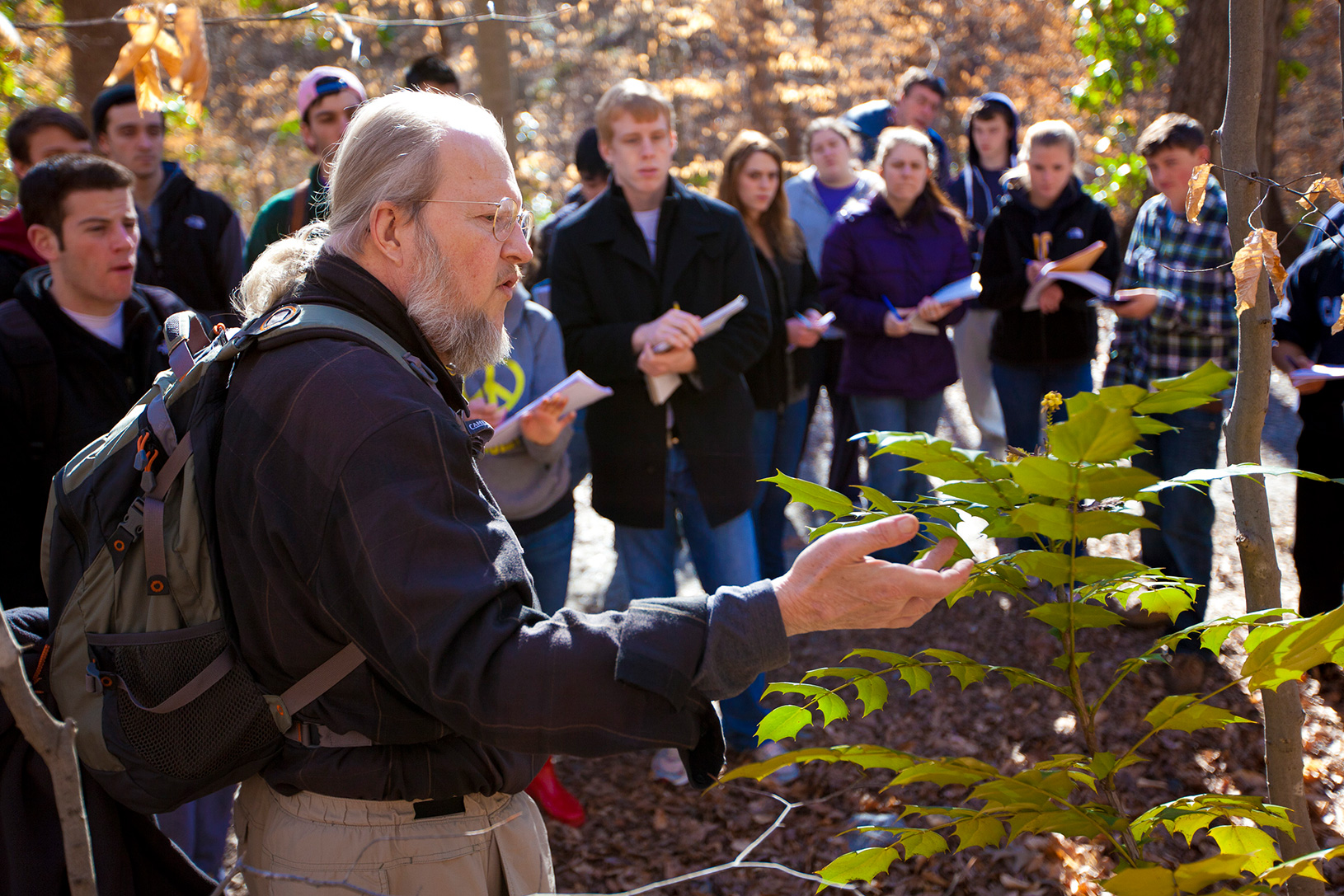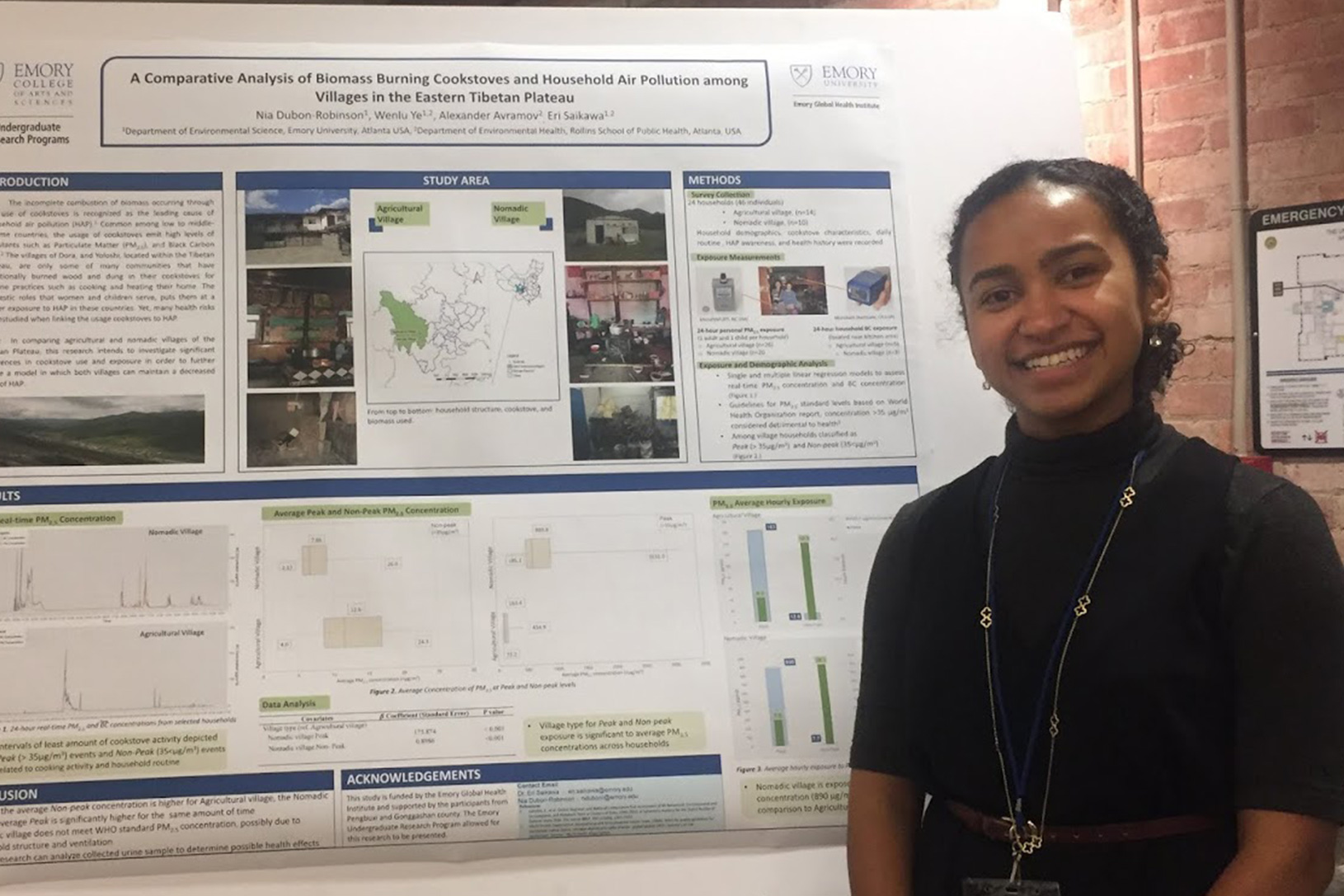Environmental Sciences
BA or BS Major, Minor

Environmental scientists work to solve many of our world's most pressing issues. As stewards of natural resources, they protect our water, help control pollution, clean up toxic waste, advise on land use and development, and engage in environmental law and policy decisions.
At Emory, you’ll study the ecological and social foundations of environmental issues. Our interdisciplinary curriculum lets you build both knowledge and practical, real-world skills, through field study, internships, research, and study abroad programs.
Emory offers the following programs:
- A traditional Environmental Sciences BA or BS
- An Environment Management Concentration in the Goizueta Business School
- A 4+1 Environmental Science BS/MS
- 4+1 Environmental Science BS/EH MPH, Master of Public Health
Outcomes
Environmental science is a broad field that offers a whole world of professional opportunities. You could focus on water policy and management, climatology, wildlife and fish conservation, environmental law, or urban forestry (just to name a few).
Recent Emory graduates have gone on to work at The Centers for Disease Control and Prevention, The Rollins School of Public Health at Emory University, the U.S. Environmental Protection Agency, Johns Hopkins Bloomberg School of Public Health, and Berkeley Lab.
Examples of Classes
Film, Media, and Social Activism
Students collaborate with leading Atlanta-area filmmakers and community nonprofits to explore the power of media to affect change around major social issues and to develop and produce thought-provoking projects.
Research Methods for Studies of Water and Health
Learn the field and lab skills you need to get started on your own Atlanta-based water-, sanitation- and hygiene-focused research. Previous projects have included hygiene practices in Atlanta dog parks and water quality in the Chattahoochee River – and in Emory students’ water bottles.
Metropolis, Migration, and Mosquitoes
As concern over Zika continues, students analyze disease patterns and prevention within a historical perspective and address questions of how class, race and gender have led to historically different incidences of, and responses to, disease and the relationship between cultural attitudes, exposure to diseases, and access to health care.
Research in Environmental Sciences

Sustainable Development
Roughly 40% of the world’s population relies on cookstoves for preparing daily meals, a practice which dangerously increases household air pollution. Nia Dubon-Robinson, a double major in Environmental Science and Sociology, analyzed data from agricultural and nomadic villages of Tibet and presented her results at the international Sustainability and Development Conference. Traveling to the conference at the University of Michigan was funded in part by a conference grant from Emory.